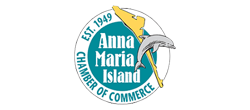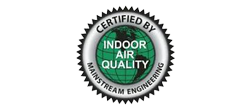Serving Sarasota and Manatee County
Licensed to CHILL since 1981
FAQs
Air America
Have an HVAC-related question? We have the answer. Check out these FAQs and call or text today for more information!
-
What are the benefits of whole-house dehumidification?
Whole-house dehumidification helps reduce mold and mildew growth, enhances comfort by removing excess moisture, improves indoor air quality, and protects your home and belongings from humidity-related damage.
-
What are the benefits of ductless mini-split systems?
Ductless mini-split systems offer individualized comfort control, energy efficiency, zoning capabilities, and ease of installation without the need for ductwork.
-
What is the ideal humidity level for indoor comfort?
The ideal humidity level for indoor comfort typically falls between 30% and 50%. Maintaining this range helps prevent mold growth, reduces allergens, and promotes overall comfort.
-
How can I improve energy efficiency in my HVAC system?
You can improve energy efficiency by scheduling regular maintenance, sealing ductwork, upgrading to a programmable thermostat, and investing in energy-efficient HVAC equipment.
-
What should I do if my air conditioner is blowing warm air?
Check your thermostat settings, change the air filter, ensure proper airflow, and inspect for refrigerant leaks. If the issue persists, contact us for professional diagnosis and repair.
-
Can you help with indoor air quality testing?
Yes, we offer indoor air quality testing to identify pollutants, allergens, and other contaminants in your home's air. Based on the results, we can recommend appropriate solutions to improve air quality.
-
What are the benefits of regular HVAC maintenance?
Regular maintenance helps improve system efficiency, extend equipment lifespan, prevent costly repairs, ensure safe operation, and maintain indoor comfort.
-
Do you offer financing options for HVAC installations?
Yes, we offer flexible financing options to help make HVAC installations more affordable for our customers. Contact us to learn more about our financing plans.
-
What are the signs that my air conditioner needs repair?
Signs include reduced cooling efficiency, unusual noises, strange odors, frequent cycling, and visible leaks. If you notice any of these signs, it's best to schedule a professional inspection.
-
What are the benefits of heat pumps compared to traditional air conditioners?
Heat pumps offer both cooling and heating capabilities, making them versatile and energy-efficient solutions for year-round comfort. They also reduce reliance on fossil fuels and can lower energy bills.
-
How do I know if my home needs dehumidification?
Signs that your home may need dehumidification include musty odors, condensation on windows, visible mold or mildew growth, and discomfort caused by excessive humidity.
-
Can you recommend ways to improve indoor air quality besides using air purifiers?
Yes, strategies to improve indoor air quality include proper ventilation, maintaining optimal humidity levels, using high-quality air filters, and scheduling regular HVAC maintenance.
-
How long does an air conditioner installation typically take?
The duration of an air conditioner installation can vary depending on factors such as the size of the home, existing ductwork, and any necessary modifications. On average, installations can take one to three days.
-
What factors should I consider when choosing a new air conditioner?
Factors to consider include the size of your home, energy efficiency ratings, your budget, available rebates or incentives, and any specific comfort preferences or indoor air quality concerns.
-
How can I improve energy efficiency in my HVAC system?
You can improve energy efficiency by scheduling regular maintenance, sealing ductwork, upgrading to a programmable thermostat, and investing in energy-efficient HVAC equipment.
-
What maintenance tasks would be performed to keep my air conditioner running smoothly?
Regular maintenance tasks include cleaning or replacing air filters, clearing debris from the outdoor unit, checking and cleaning the evaporator and condenser coils, and scheduling annual professional inspections.
-
Can you explain how heat pumps work?
Heat pumps transfer heat between the indoor and outdoor environments using refrigerant. In cooling mode, they absorb heat from indoor air and release it outdoors. In heating mode, they extract heat from outdoor air and transfer it indoors.
-
What are the benefits of ductless mini-split systems for air conditioning?
Ductless mini-split systems offer individualized comfort control, energy efficiency, zoning capabilities, and ease of installation without the need for ductwork.
-
Can you help with indoor air quality testing?
Yes, we offer indoor air quality testing to identify pollutants, allergens, and other contaminants in your home's air. Based on the results, we can recommend appropriate solutions to improve air quality.
-
What should I do if my air conditioner is blowing warm air?
Check your thermostat settings, change the air filter, ensure proper airflow, and inspect for refrigerant leaks. If the issue persists, contact us for professional diagnosis and repair.
-
What is the lifespan of an air conditioning system?
The lifespan of an air conditioning system varies depending on factors such as usage, maintenance, and quality of installation. On average, a well-maintained system can last 10 to 15 years or more.
-
Do you offer financing options for air conditioner installations?
Yes, we offer financing options to help make air conditioner installations more affordable for our customers. Contact us to learn more about our financing plans.
-
How can I prevent common air conditioner problems?
Preventive maintenance, such as regular filter changes, professional inspections, and cleaning of coils and components, can help prevent common air conditioner problems and extend the lifespan of your system.
SErving
Bradenton, FL
Ellenton, FL
Lakewood Ranch, FL
Palmetto, FL
Parrish, FL
Sarasota, FL
Anna Maria Island, FL
Longboat Key, FL
Siesta Key, FL
and surrounding areas
Business Hours
- Mon - Fri
- -
- Sat - Sun
- Closed
Daily Emergency Service Until 10:00 pm | Only Emergency Service on Memorial Day, Independence Day, Labor Day




Share On: